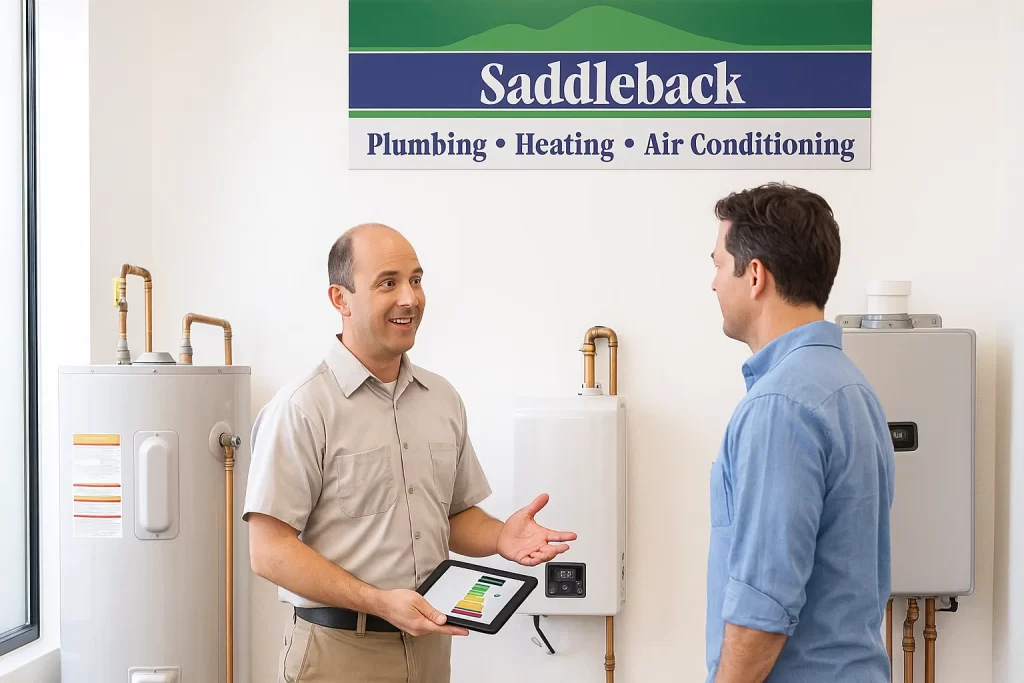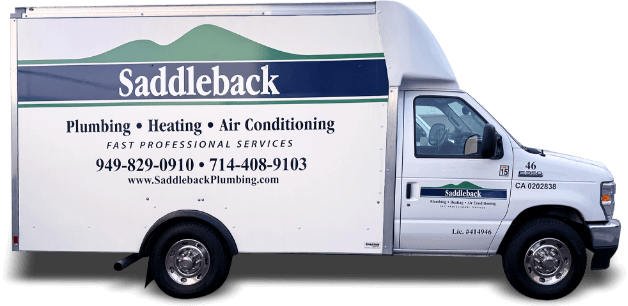When it’s time to replace your water heater or install one in a new home, one of the biggest decisions you’ll face is whether to go with a traditional tank water heater or a modern tankless model. Both have their advantages, and choosing the right one depends on your home’s specific needs, including household size, daily hot water usage, energy efficiency goals, and budget.
In this guide, we’ll break down the pros and cons of each system and help you determine which option makes the most sense for your lifestyle.

How Tank & Tankless Water Heaters Work
Tank water heaters store a fixed amount of hot water (typically 30 to 80 gallons) in an insulated tank, heating it continuously so it’s ready when you need it. Once the hot water is used up, the tank must refill and reheat, which takes time.
Tankless water heaters, on the other hand, heat water on demand. When you turn on a hot water tap, the unit instantly heats the water as it passes through the system, meaning you never run out of hot water as long as the unit can keep up with demand.
Key Considerations for Choosing the Right Water Heater
1. Household Size and Hot Water Usage
One of the most important factors in your decision is how much hot water your household uses.
- Small Households (1–2 people): A tankless water heater may be ideal. With fewer simultaneous hot water demands, a compact, energy-efficient tankless system can meet your needs while saving space and energy.
- Large Families (3+ people): If your family runs multiple showers, a dishwasher, and a washing machine all at once, a traditional tank heater (with a larger capacity) or even a whole-home tankless system with multiple units might be better suited to handle the volume.
2. Energy Efficiency
- Tank Water Heaters: Because they store and reheat water continuously, traditional tanks use more energy, even when hot water isn’t being used (called standby heat loss). However, newer ENERGY STAR® certified models have improved insulation and better efficiency than older versions.
- Tankless Water Heaters: These are generally more energy-efficient, as they only heat water when it’s needed. According to the US Department of Energy, homes that use less than 41 gallons of hot water daily can see energy savings of 24–34% with a tankless system.
3. Installation and Space Requirements
Tank Heaters require more space, and you’ll need to allocate room for a large, upright tank—usually in a garage, basement, or utility closet. Tankless Heaters are wall-mounted and much smaller, making them a great solution for homes with limited space or for those seeking a cleaner, less intrusive look.
4. Cost and Budget
- Initial Costs: Tank heaters are more affordable upfront, with lower purchase and installation costs. Tankless systems cost more to install, especially if your current plumbing or gas lines need to be upgraded.
- Long-Term Costs: Tankless units tend to last longer (about 20 years vs. 10–15 for tanks) and can save money on utility bills over time, making them a good investment if you plan to stay in your home for a while.
Pros and Cons at a Glance
Tank Water Heater:
- Lower upfront cost
- Lasts 10 to 15 years
- Limited tank capacity
- Lower overall efficiency
- Takes up more space
- Tank size can be customized based on household size
Tankless Water Heater:
- Higher upfront cost
- Lasts 20 years or longer
- Nearly unlimited tank capacity
- Higher overall efficiency
- Takes up less space
- Multiple units can be installed to accommodate a larger household size
Contact Saddleback Plumbing Heating & Air for fast, professional water heater installation in Orange County, CA. We have served Orange County since 1981.











